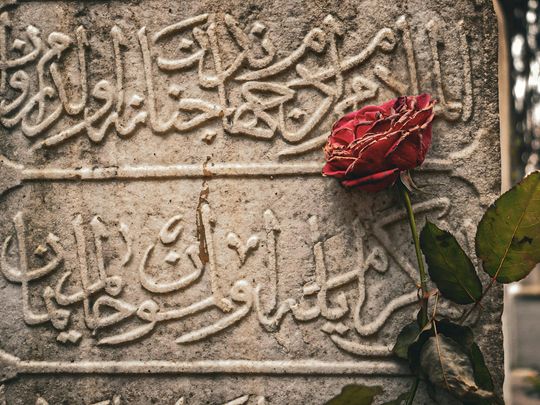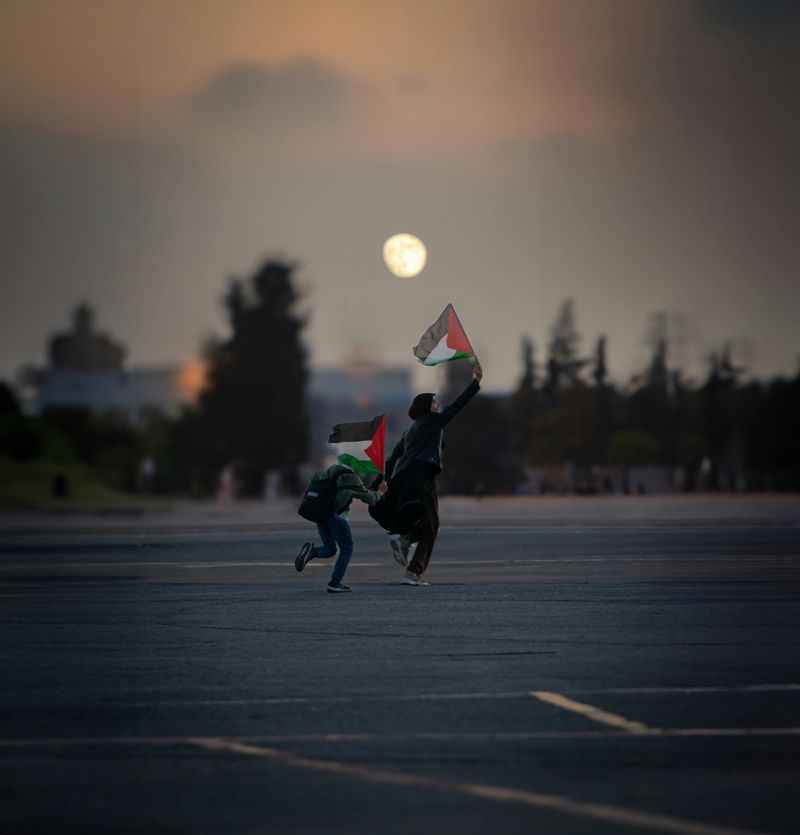
My friend Suleiman Deeb, 83, suddenly passed away late last month in a place he forever loved, one where he had made his original leap to consciousness as a Palestinian — Gaza. Though he was buried there, he would’ve preferred to have been laid to rest in al-Majdal, his birthplace in Palestine, about which more later.
Suleiman, engagingly known by those close to him as Abu Suloom, did not die, as you would’ve expected him to have died, like close to 30,000 other Gazans, a violent death, but of a heart attack as winter night and Israeli bombs fell on Khan Younis on Jan. 24, leaving buildings in this town north of the Strip ablaze and in ruin.
I was informed of the death earlier this week in a message I received from his relatives there, who were convinced that it was the cardiogenic shock of the bombing raid that killed him.
In many ways, the incredible eighty three years that made up Abu Suloom’s life mirrored the dominant characteristics that defined the Palestinian people as a whole — deracinated yet anchored in place, ambitious, combative, restless, moralistic and utterly tiresome as a single-minded, single-issue apostles, a people to whom their struggle for national liberation always took a front seat in their lives.
Abu Suloom arrived in the United States in the 1950s on a scholarship to study at a university in the Midwest that he called, in his self-deprecating and humorous manner of speaking, Flunky-U, allegedly for being “dumb enough to grant someone like me an admission”.
The Fifties was a decade of innocence in America — of Ike pushing golf balls on the White House lawn, Doris Day and Rock Hudson romancing in Pillow Talk, the proliferation of Holiday Inns and Drive-ins, the moral rectitude of the middle class found in The Man With the Gray Flannel Suit and, of course, the taboo placed on the F-word in literature and the media. Abu Suloom thought it was all cute and he settled in.
After he got his Ph. D, he ended up teaching anthropology at the University of California-Berkeley, where, in between lecturing and publishing papers in obscure scholarly journals, he found himself enmeshed, if only peripherally, in the Free Speech Movement that had erupted on campus during the 1964-1965 academic year, one that involved thousands of students and that many consider the first mass act of disobedience on an American campus in the Sixties, a turbulent decade that went to become the antithesis of the one that preceded it. Abu Suloom was enjoying himself.
By the time he arrived in Washington to live there in 1988, where I first met him and we became close friends, had grown weary of teaching and decided to go on the lecture circuit in order to promote the Palestinian cause, a lifestyle that suited him just fine since he now could, as he put it to me in his accent-free American English, to “genuinely tell it like it is” to people who wanted to know what Palestine was and who Palestinians were.
But soon he got tired of that too.
Return to the old country
The man, after all, was already over the hill in the age department and had been through one divorce, from an American wife, and through yet another from a Gazan wife whom he had tied the knot with in an arranged marriage. The time had come for him to think about returning to the old country.
Abu Suloom and I were close. We were brother exiles. And we were awlad mukhayamat — a Palestinian colloquialism that defines the rebellious spirit of our refugee camps and the rugged individualism of their inhabitants — that roughly translates as “camp boys” or, more accurately, “the boys from ‘hood”. And we both shared memories of our respective childhoods in those camps, he in Khan Younis and I in Beirut. True, you suffer when you remember, as French poet Charles Baudelare put it, but you also bond.
So, in 1994, Abu Suloom picked up and returned to Gaza to live there permanently and to see if there was a role he could play there in his twilight years.
You see, this was a year after the signing of the Oslo agreement, a time when Yasser Arafat was a man still with something bouncy and indefatigable about his persona who called Israeli leaders “my peace partners”, a time also when for Palestinians as a whole expectations of progress, of political and social enfranchisement moved closer and statehood took on the urgent drama of concreteness, of a dizzying sense of total possibility.
Abu Suloom never gave up, even when peace negotiations dragged on endlessly. Indeed, after the tiny Gaza International Airport opened for business in 1998, he wrote to tell me that the Gaza Strip may one day soon transform into a prosperous port city with ritzy hotels and beachfront villas, and heck, he might invest his entire life savings in a hotel he would call the Gaza Plaza. He still stayed in that little strip of land where he had grown up even, I say, after it all soured and the dream turned into a nightmare.
I don’t know where Abu Suloom was buried exactly. Maybe under a patch of earth, next to a heap of rubble from a collapsed building somewhere in Khan Younis, put to rest there by relatives who would have read the Fatiha Sura over his makeshift grave.
My friend, I say, would’ve preferred to have been buried in al-Majdal, his birthplace, in a cemetery where his grandparents and grand-grand parents had also been buried.

Al-Majdal: Where echoes of our ancestors still linger
Al-Majdal was a Palestinian town, a mere 8 miles from the Gaza border, that on the eve of the Nakba in 1948 had a population of 10,000, all of whom were Palestinian. In October that year, that population swelled to three times its size with the influx of refugees expelled from nearby villages by Israeli forces.
When the town fell to these forces that month, the entire population was expelled to Gaza — save for 2,700 souls. Then 500 of these were expelled in December and the rest in 1950.
Al-Majdal was cleansed of all Arabs and was named Ashqelon. Today it is inhabited entirely by Israeli Jews.
As I mourned my friend’s death last week, I reflected on how the first town that Palestinian militants targeted for attack during their Al-Aqsa Flood operation was Ashqelon and wondered whether some of them were the sons or grandsons of those uprooted folks who were so cruelly expelled from their ancestral town and sent packing to Gaza.
Palestinians have been reflecting and wondering for the last three quarters of a century.
Meanwhile, farewell, Abu Suloom, and rest in peace, my dear friend.
— Fawaz Turki is a noted academic, journalist and author based in Washington DC. He is the author of The Disinherited: Journal of a Palestinian Exile








_resources1_16a45059ca3_small.jpg)
